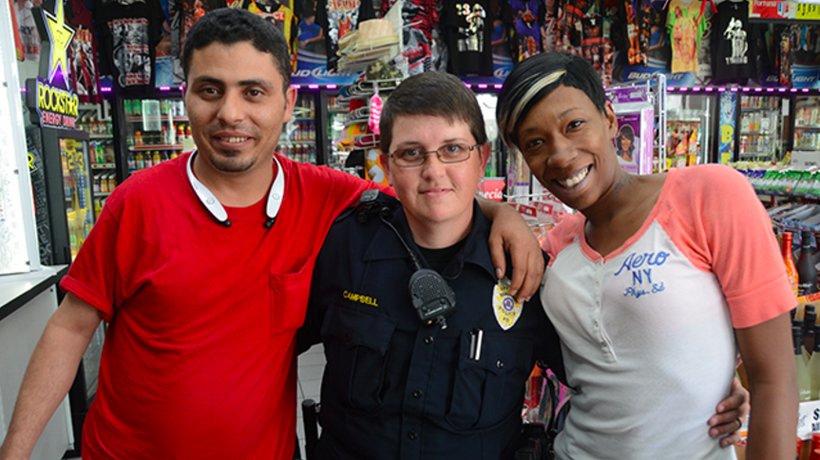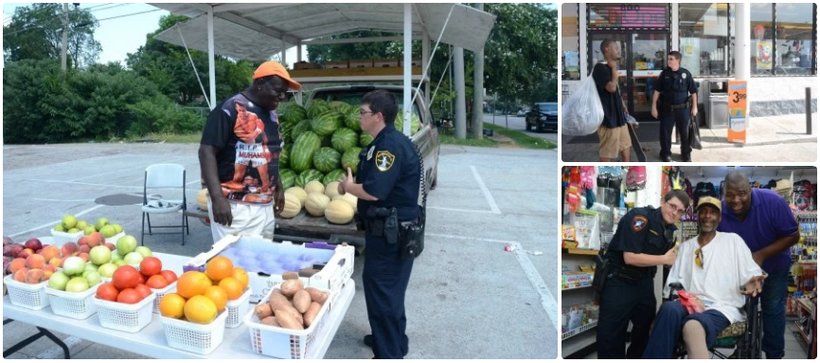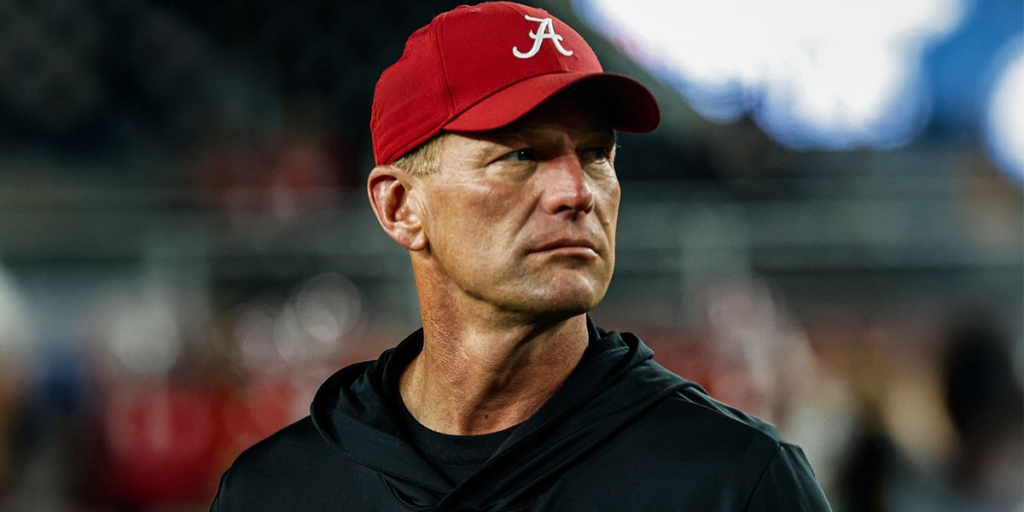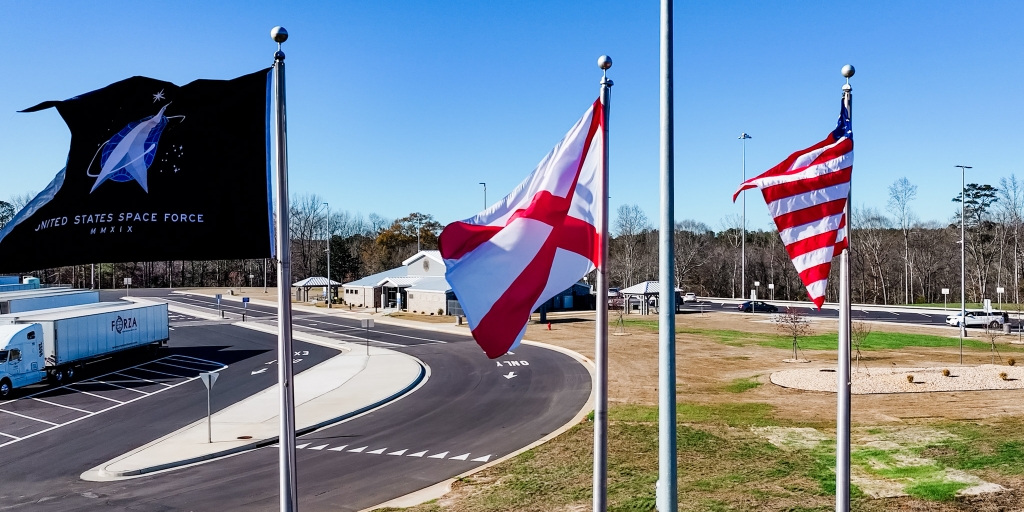
By Karim Shamsi-Basha
Twenty-year-old Tony Harris walked into the Shell station on Third Avenue West in Ensley looking defeated, sweat dripping from his chin. He held a bag of clothes over his shoulder, the other arm cradling a skateboard resting on his waist. He slowly approached Birmingham Police Officer Heather Campbell and me.
Campbell faced the young man with self-assurance and warmth, then asked how she could help him.
“I need to get to North Birmingham, near the food stamps office,” he said, doubtful.
“I’d be happy to take you,” Campbell replied with a smile. Then she bought him a cold drink, while sipping on her warm Coke.
The West Precinct officer works with the department’s Community Services Division. Her job is to build better relationships between community and police through interactive initiatives throughout the area she serves.
I tagged along with Campbell as she patrolled in Ensley. She drove near a street where a homicide had taken place that morning, but you would never have known it. She waved at people, smiling and comfortable. Her laser-focused eyes showed she was paying attention, and her no-fear attitude was obvious. She makes up for her 5-foot height with unmistakable power from within.
“I’m not here to kill people. I’m here to help people,” Campbell said. “A third of Ensley has my cell number. We have to be approachable. These people need us, and we are here to offer assistance, and hope.”
At the Shell station on Third Avenue West, operator Waleed Senan smiled broadly when Campbell walked inside.
“In my country of Yemen, when a policeman approaches me, I feel frightened. Here, I feel safe. They make life safe,” Senan said.
Back on patrol, we took a turn and Campbell stopped to walk the sidewalk. A woman wearing a scarf opened her door.
“Is everything OK?” the woman yelled.
“Everything is OK, ma’am. Just patrolling,” Campbell said, grinning.

Changing opinions
In the early 1990s at Leeds High School, Campbell wanted to be involved in her community and to help her neighbors.
“I want to at least make one change in the life of someone every day. I can go into somebody’s house who’s had an absolutely terrible day, and when I leave they’re smiling. That makes me know I helped someone today, that I changed their opinion about us,” Campbell said.
With recent shootings by and of police, policing has become a national news event – almost daily. Campbell, along with everyone else in the Community Services Division, wants to change perceptions.
“Being a police officer on the streets today, you have to watch your back. I leave my house every day not knowing if I’m coming back, but that’s not my first priority, me. My first priority is the citizens,” Campbell said.
Fellow Community Services Officer Tim Gardiner agrees.
“The Birmingham Police Department has done very well as far as community relationships, but people see more of the bad than the good. You don’t see us playing with the kids, giving out teddy bears, handing out popsicles because it’s hot,” he said. “Officer Campbell goes above and beyond what’s expected of her every day.”
Community Services Capt. Cathy Peoples concurs. She has been with the division since its inception in 2011, and believes in its impact on the community.
The Community Services Division offers a variety of programs designed to promote interaction between the police and community. Among them are internships, chaplain corps, school resources, explorers, gang resistance education, athletics, senior employment, community revitalization, citizens on patrol and a citizens’ police academy.
“With what’s going on in the country, we are out there beating the pavement letting people know what we have to offer. We really want to build those relationships. That’s what this Community Service Project is all about,” Peoples said.
Peoples believes interaction between the community and the police department has made a positive impact.
“We have more people for us than against us. We have volunteers that work in the jails teaching literacy. We have volunteers that provide church services. We have volunteers that provide clerical and administrative services. Our community loves to help,” Peoples said.
Procedural justice training
Birmingham Police Chief A.C. Roper was visiting the West Precinct. You can tell a lot of fire is brewing under his unassuming exterior.
“Treating people with dignity and respect is vitally important,” Roper said. “We just went through 16 hours of procedural justice. We’re one of the first departments in the nation to do that. That talks about day-to-day interactions and learning how to be neutral and how to listen to people.”
Roper believes officers like Campbell at the Community Services Division make a big difference, considering the turmoil surrounding many police departments around the country.
“It’s important that we are talking to the community, and listening to them,” Roper said. “We must give the people a voice because they are the ones that are living in the community, so their partnership is important. You can’t have a partnership without trust, and you can’t have trust without good communication.”
Turning on another Ensley street and waving to a woman on the porch of a modest home, Campbell summed things up.
“To me, the people we serve should get exactly that, service – with a smile, a genuine smile. When that happens, it makes you feel good inside. It makes you feel that you did what you’re supposed to do,” she said. “I get that feeling almost every day.”










